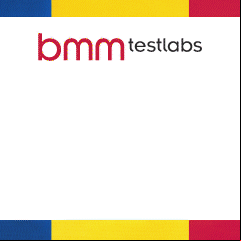Romania gambling market – a new era of opportunity 2q4b4x
As Romania’s political dust settles, the Romanian gambling market finds itself standing at a pivotal crossroads. The end of political turbulence is giving way to a renewed sense of direction, anchored by recent leadership changes at the National Gambling Office (ONJN). t1255

Cosmina Simion, Managing Partner WH Simion Partners 35734

Alina Tace, Partner WH Simion Partners
The Romanian gambling market has matured substantially in the last
decade, starting with its regulated beginnings and evolving into a robust legal framework aligned with European norms. That trajectory, however, has also brought complexity—frequent tax changes, political interference, and rising compliance burdens, which made long-term planning difficult. Yet, paradoxically, this new phase may offer a rare commodity in Romanian policymaking: stability.
Despite legitimate concerns over future fiscal pressures—particularly amid ongoing budgetary deficits—we hope unlikely for an additional tax increase to hit the gambling industry in the short term. The 2023 fiscal overhaul was particularly impactful: license fees increased, financial guarantees have been multiplied even 35 times and non-resident operators were required to establish permanent establishments in Romania—effectively subjecting them to domestic corporate tax as well. While burdensome, these changes also triggered a significant market consolidation, filtering out weaker players. The industry is now leaner, with an increased level of compliance, and potentially better positioned to handle what comes next. Industry insiders agree: the market has matured. The demand now is for predictability and consistency.
What lies ahead for operators is not necessarily easier, maybe even the opposite, but it may be a roap with rules for all to follow consistently.
Key regulatory trends to watch include strengthened responsible gambling frameworks (including the national self-exclusion database), potential advertising restrictions and, finally, zero tolerance for unlicensed activity (where enforcement against the black market, both retail and online, has already intensified).

Romanian gambling market
A legitimate and increasingly prominent concern within the industry is the activity of another state authority, the National Audiovisual Council (CNA). Traditionally mandated with oversight in the television and radio sectors, the CNA is now exercising its supervisory powers with growing assertiveness in the online environment as well. In this context, we recall the proposed amendment to Decision No. 220/2011 regarding the Audiovisual Content Regulation Code, which includes, among other things, significant changes impacting the gambling industry — namely, the prohibition of broadcasting gambling ments featuring public, cultural, scientific, or sports personalities, or other individuals whose online notoriety may encourage participation in such activities. The draft amendment to the Audiovisual Code was put forward for discussion during the Counsil’s meeting held on 28 May 2025.
It is clear that achieving objectives such as the protection of minors—particularly in the context of the online environment—requires close cooperation not only at the national level but also regionally, through engagement with European institutions. It remains to be seen whether state authorities will choose to collaborate or continue to operate independently. What is certain, however, is that the market in all its facets—rs, sports federations, gambling operators, and, most importantly, the average citizen who is the end beneficiary of these sectors—will be impacted to a greater or lesser extent, depending on the course of action adopted by the decision-makers.

foto: gambleroad.com
The verdict: a tighter grip, but a safer path 6l2f2
Romania’s gambling market seems to be entering a more controlled, but arguably more sustainable, phase. The risk of extreme policy swings appears to be fading. In its place comes a style of regulation that may be stricter—but also fair and consistent.
So, we could say that Romania’s gambling market is entering a new regulatory era—one that promises greater control but also hopefully offers a stable and professional playing field. For years, operators have navigated unpredictable but substantial changes with shorth implementation deadlines. With a more rigorous, but dialogue-oriented ONJN, a different kind of stability is within reach. It may be stricter. It will certainly be more structured. But if managed wisely, this new environment could finally give the Romanian gambling market what it craves most: regulatory security, operational clarity, and a foundation for long-term growth. In other words, a regulatory framework that may be stricter, but with clear implementation rules, smarter, and built to last.
For stakeholders across the ecosystem, the message is clear: structure is not a threat. It is the foundation. And in this evolving landscape, those who embrace it will not only endure but help define the future of gambling in Romania.

WH Simion & Partners





